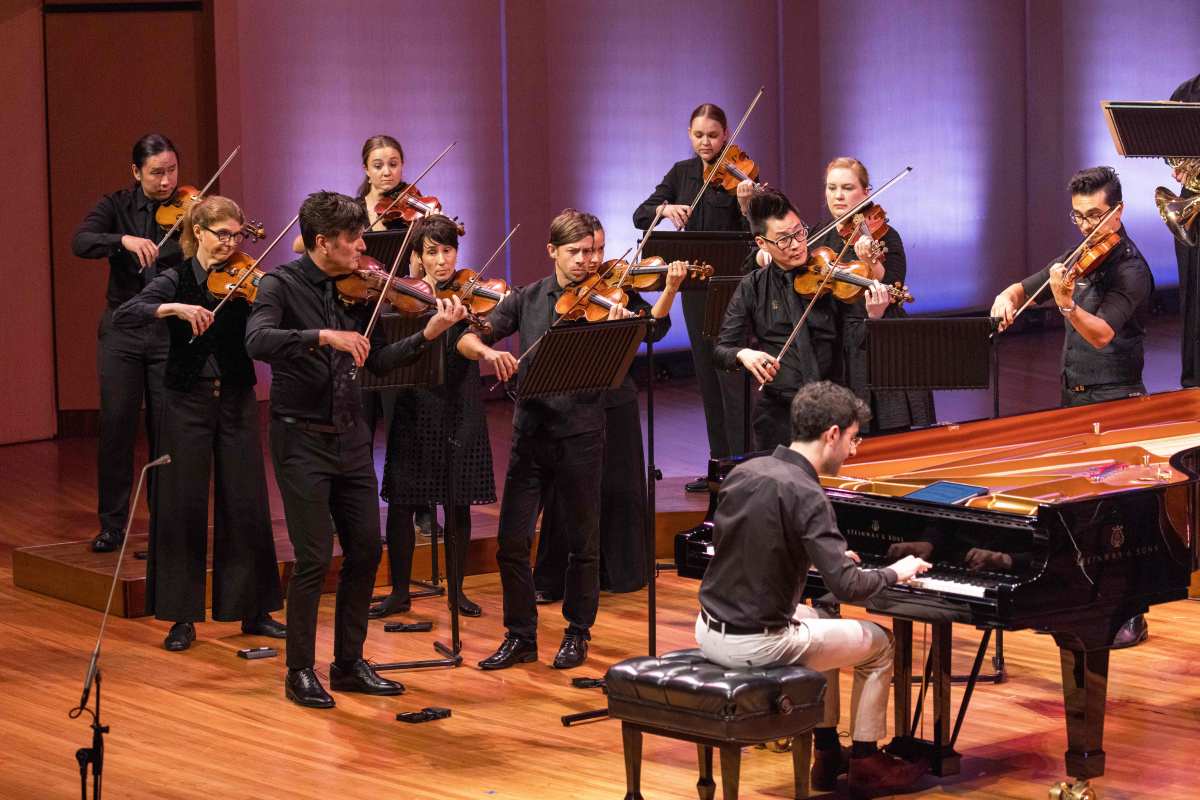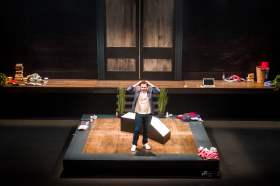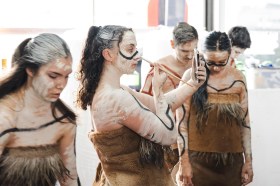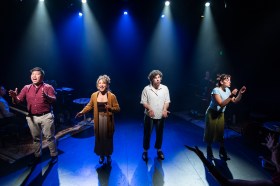As we have come to expect from our homegrown chamber orchestra, Camerata set the mood and tone for its 2024 season with an opening concert that was brimful of energy, excitement and exquisite music-making. The chosen program of classic works, all new to Camerata’s repertoire, expanded the usual core strings into a full-size chamber orchestra of 34 players. The additional double woodwind, trumpets and timpani are members of Camerata’s larger and occasional family of instruments and it is always a pleasure when they reappear. This increased instrumentation allowed the orchestra to perform Wagner and Beethoven repertoire with aplomb, while engaging a solo pianist to perform Beethoven’s Piano Concerto No. 1.
Beethoven’s overture to Heinrich von Collin’s play, Coriolan (which, like Shakespeare’s play, was based on the story of Roman leader Gaius Marcius Coriolanus), is a masterful and colourful work from the composer. Following the style of the period, Beethoven set out to convey the machinations and intensity of the complex plot in the overture. He thus created a work that swings back and forth between music depicting both Coriolan’ ferocious warmongering and his peacemaker mother Volumnia’s urgent pleas for calm.
Camerata commenced with the first theme – the fierce dramatic chords that represent Coriolan dissolving into soft restrained playing from the woodwind for his mother. The two themes zigzagged back and forth in an abridged sonata form between the intense drama and the muted but increasingly insistent second theme of Volumnia. Without a conductor, this work was nevertheless well-paced and led by Artistic Director, Brendan Joyce, who nuanced light and shade within the respective narratives. There were some lovely solos from flute and oboe as the woodwind gained in urgency with a whisper-soft ending from perfectly played celli.
Wagner’s Siegfried Idyll is a delightful and joyous symphonic poem that the composer wrote for his wife, Cosima, on the birth of their son, Siegfried. Later, much of it was incorporated into his opera, Siegfried, but nevertheless the Idyll stands alone as a very fine single movement in expanded sonata form.
Its opening theme is distinctly pastoral in feel, relying almost entirely on the violins and darker strings for its melodic intensity. Joyce’s first violin gave us some first-rate legato, followed by the introduction of the woodwind with exquisitely played solos from flute, oboe, clarinet and bassoon. Tender and delicate playing abounded from gentle violins through Siegfried’s ravishing horns, with forest and birdlike sounds appearing in the clarinets matched by pizzicato celli. Joyce elicited a marvellous palette of colourful instrumentation that showcased the depth of orchestral sound. Glorious music, exceptionally well played.
An initial idea by Joyce, and now a regular feature of Camerata’s concerts, the Wild Card Mystery Guest was Adam Lopez, a locally-based singer with an eight-octave range. Famously entered into the Guinness Book of Records for singing the highest note ever performed by a male singer, Lopez was introduced as a countertenor, though according to his recordings he would appear to be predominantly a pop musician whose substantive voice is that of tenor.
Classically trained, he sang Almirena’s ravishing soprano aria, Lascia ch’io pianga from Handel’s opera Rinaldo, managing it well. He followed this with a demonstration of his huge vocal range in a jazzy arrangement of ‘My Favourite Things’ from The Sound of Music. With astonishing agility, he jumped vocally from bass to high notes and back again. Clearly a party piece, it was skilfully executed and elicited a joyous response from the audience.
A graduate of the Queensland Conservatorium of Music, Griffith University, Brisbane-based Alex Raineri is an internationally recognised pianist who plays regularly across Australia, and is currently Artistic Director of the annual Brisbane Music Festival. Beethoven’s Piano Concerto No. 1 is a virtuosic work for the pianist with its range of cadenzas and a complex harmonic structure. A classic romantic work in sonata form, it has a range of harmonic shifts across its three movements. Without a conductor, Raineri chose to play the piano facing upstage, so that he could engage more readily with the orchestra. While this meant we could not see his face, we could see most of his hand and finger movements and thus appreciate the intensity and virtuosity of his playing.
The opening Allegro con brio commenced with solo orchestra, offering brisk and powerful strings before the piano joined and firmly took over control. From the outset, Raineri’s interpretation was impressive and he demonstrated a strong technical capability with an ease and confidence in his instrument that was delightful to watch. His musicianship was nothing short of masterful and he played the chosen cadenza with authority and skilful expertise from the tinkling high notes through the middle and lower registers with finely crafted arpeggios. He was supported fully by the orchestra, who delivered a strong and intense coda to finish the movement.
The slow Largo offered a change of pace and Raineri’s delicate, controlled playing of this splendid melody was virtuosic. There was a richness in the interactive sounds between piano, clarinets and bassoons, as the woodwind took the lead from the violins. Raineri’s measured and haunting playing was brilliantly delivered in the coda where the piano weaved in and around the clarinets.
Without pause, Raineri changed gear from the dying soft notes of the Largo to a speedy and breathtaking final Rondo (Allegro). A scherzo movement in feel, it saw the piano take on the orchestra with ferocity – the melody criss-crossing from orchestra to piano with alacrity. The strings zipped along, as did both the winds and brass. Lots of repetitions and numerous runs on the piano, plus a series of flourishes and arpeggios, led the orchestra to the final coda. What appeared to be a whisper-light ending with flute and oboe deceptively led to a final crashing orchestral chord. An exhilarating journey by all involved with splendid and considered playing from Raineri.
Read: Book review: Woven, edited by Anne-Marie Te Whiu
The pleasure in going to any Camerata concert hinges on the exuberance, excitement and sheer passion that this orchestra brings to their work. The warmth and joy they exude is always infectious, pervading the concert hall and audiences. This was a terrific concert on every level.
Camerata and Alex Raineri: Beethoven
QPAC
Alex Raineri, solo piano
Camerata, Queensland’s Chamber Orchestra
Camerata and Alex Raineri: Beethoven was performed on 17 February 2024.





